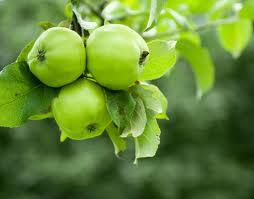Eat green, Eat local
Most of us believe in a green surrounding – whether we recycle, make changes in our homes by purchasing green cleaning products, read articles and purchase magazines that speak about our environment and ways to improve it or buy weekly local produce that supports farmers and our land.
What changes can we make as families that can help us eat local, even if we’re not farmers? Conventional farming is responsible for chemical fertilizers, herbicides and pesticides being dumped into the environment month after month. By remaining in the soil and earth, these chemicals cause harmful effects both for humans and the environment. Meanwhile, organic farming grows produce without toxic chemicals, protecting our surrounding and our future generations. 
Why is local eating beneficial? Just think of the energy used in transporting food thousands of miles from the area it was originally produced – from national to international food. By eating seasonal food, you can enjoy recipes using fresh produce and reduce energy waste.
Eat your veggies! Fresh produce and grains are low on the food chain, allowing us to feed more members of our community than if we would consume meats, chicken and/or fish. It’s efficient, healthy and a feeding method that prevents a variety of chronic illness that we face in our current society. According to Harvard Medical School, farmers who cater to local communities generally sell their produce within 24 hours of harvest, ensuring peak freshness and ripeness.
If you love to eat out, why not try restaurants that buy from local farmers? By supporting these eateries, you’re also assisting us, the growers who produce these fresh varieties of fruits and vegetables – supporting the farm to plate concept. Eating local also reduces your carbon footprint with decreased oil and greenhouse gases getting to your plate.
Stimulate yourself by creating recipes with fresh produce – most days of the week. Have you tried to add some fruit to your breakfast cereal? Lunch can be simple and sweet – a combo salad of greens, fruit and a protein source – whether tuna, chicken or maybe grilled tofu.
Protecting your environment includes cutting down on travel to different grocery stores and using excess bags for your groceries. Use recyclable bags and visit your local farmer’s market.
If you’re at a loss for recipe ideas, the fun part of talking to your local growers is getting to know each other and asking them for advice – How do I cook kale? What’s the best way to make my greens last in the fridge? Do you know of a good method to grill my veggies and enhance their taste? Supporting each other will enhance our environment for future generations.
